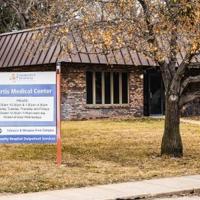Budget Cuts Close Curtis Medical Center, Affecting Rural Care

The closure of the Curtis Medical Center in Nebraska marks a significant impact of recent budget cuts approved by the U.S. House of Representatives. On July 8, 2023, just a day before the House finalized a bill backed by President Donald Trump that extends tax cuts for wealthier individuals while reducing funding for essential social programs, the medical facility shut its doors. This decision follows a staggering $1 trillion cut to Medicaid, which serves over 350,000 low-income and elderly residents in the state.
In a move that has drawn criticism, Rep. Adrian Smith, along with colleagues Rep. Mike Flood and Rep. Don Bacon, voted in favor of the bill. The Nebraska Rural Hospital Association had previously warned that the legislation would jeopardize more than 20 maternal care wards and inpatient mental health services in the Panhandle, potentially leading to the closure of six rural hospitals within two years of the cuts taking effect.
The Curtis Medical Center, which had been a cornerstone of healthcare in southwest Nebraska for more than 50 years, became the first casualty of these anticipated reductions. In his defense of supporting the Trump plan, Smith cited a provision that allocates $50 billion for rural health providers. Critics argue this funding is insufficient, merely a short-term measure that could delay the inevitable upheaval in rural healthcare for perhaps only one or two years.
Despite the potential for future reversals of the cuts, either by the current Republican party or a future Democratic Congress, the immediate consequences are severe. The Trump administration’s freeze on $28.6 million in federal grants designed to enhance student achievement and support programs for low-income areas further compounds the issue. This freeze, which took many in Nebraska’s congressional delegation by surprise, could have dire implications for the state’s most vulnerable children, affecting contracts and programs that are already in place for the upcoming school year.
Additionally, Gov. Jim Pillen expressed support for the freeze, a stance that seems to contradict his stated commitment to prioritizing the welfare of children in Nebraska. His assertion that the programs were part of an “ideological agenda” casts doubt on the administration’s dedication to addressing the needs of the state’s most disadvantaged populations.
The closure of the Curtis Medical Center highlights the real-world implications of legislative decisions that prioritize tax cuts over essential public services. As communities grapple with the fallout from these changes, the future of healthcare in rural Nebraska remains uncertain.






